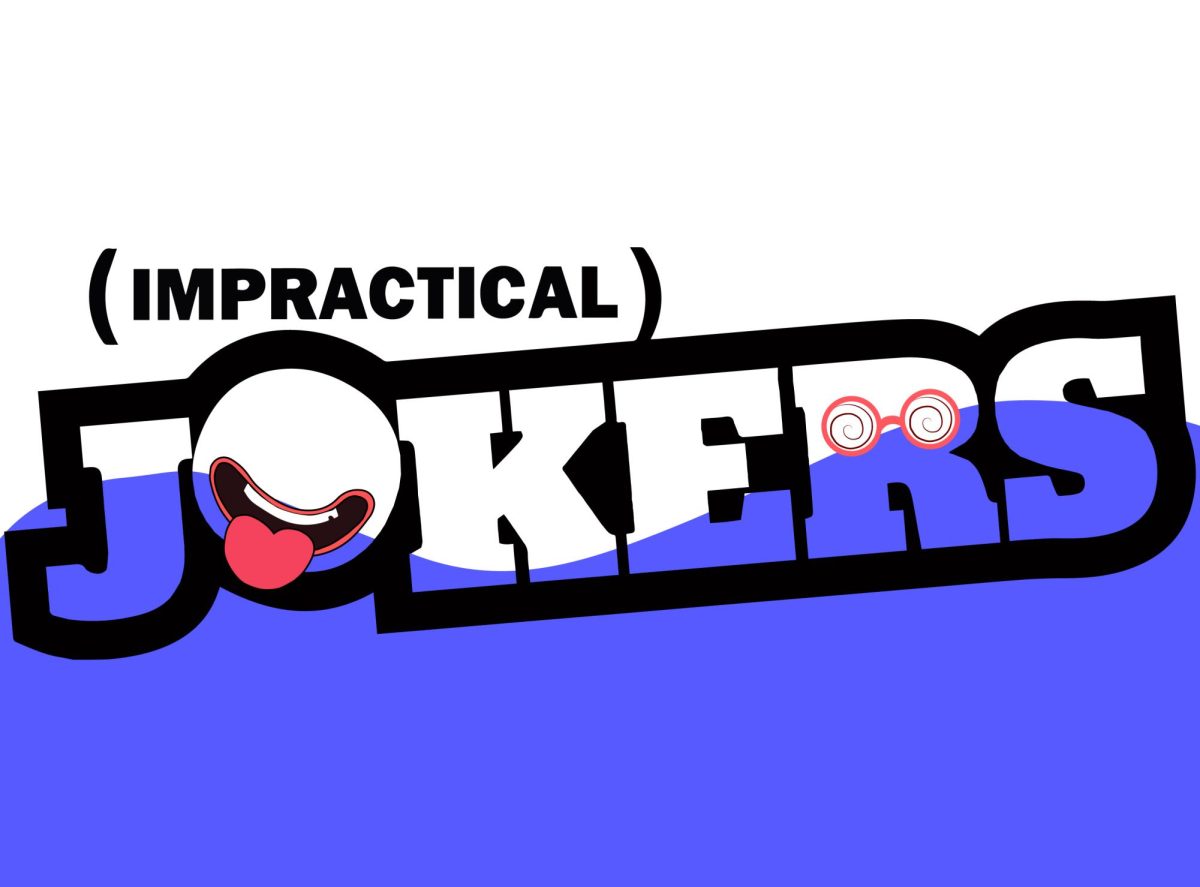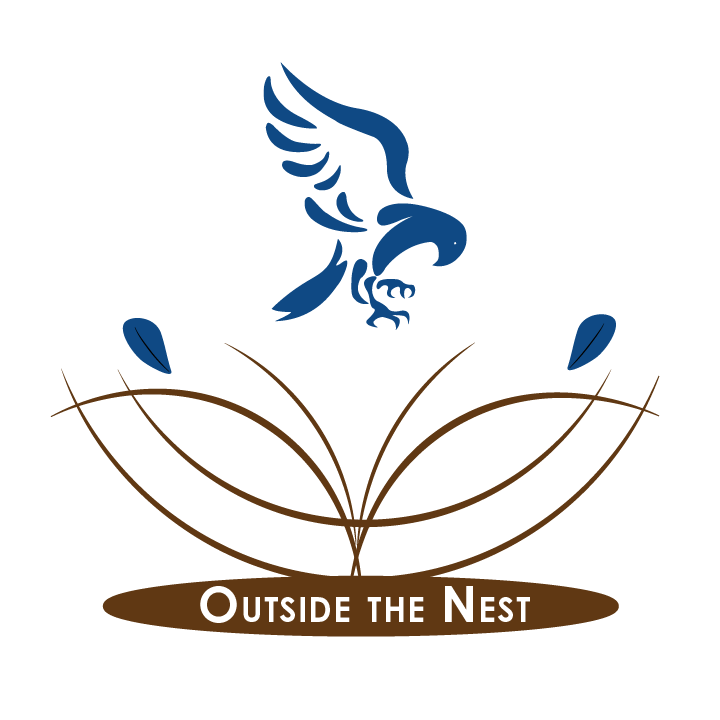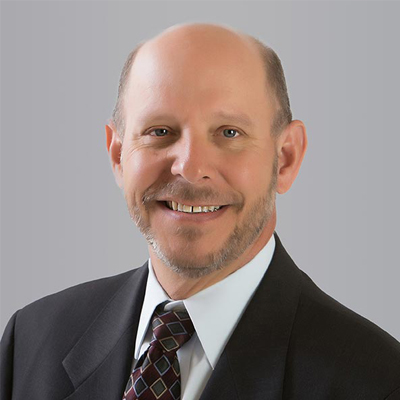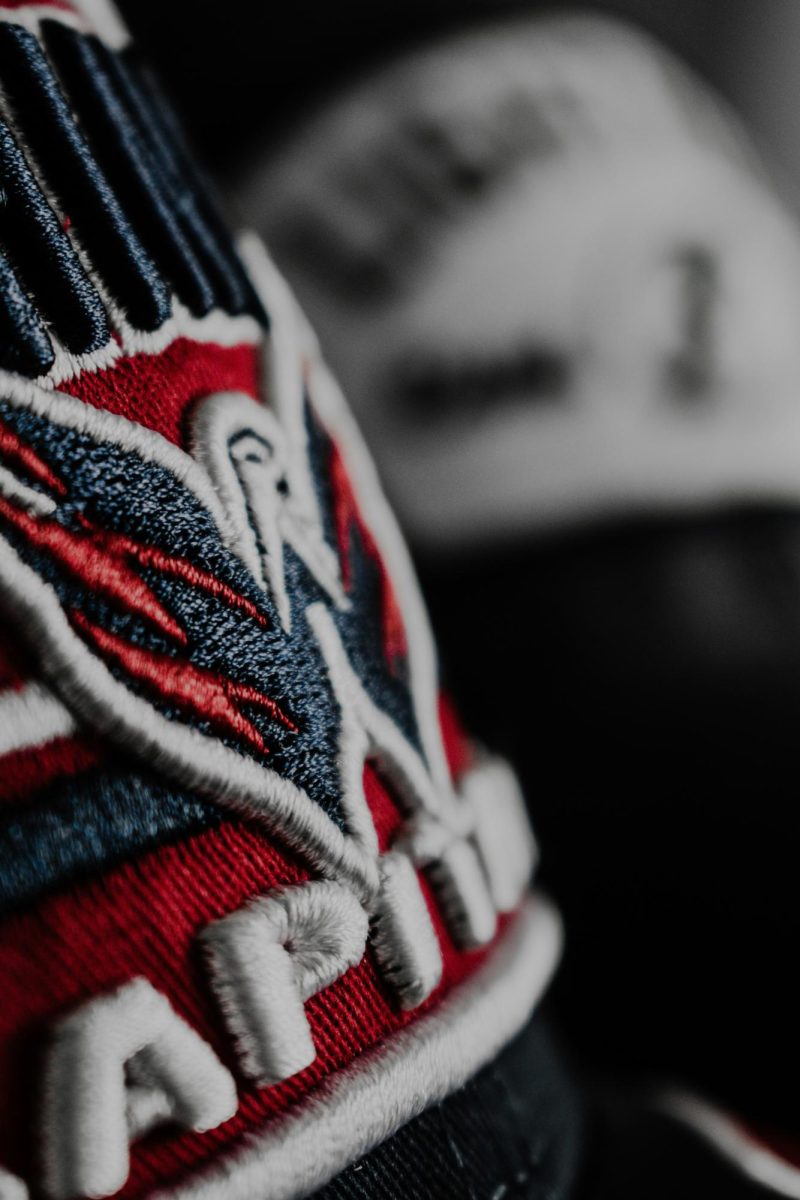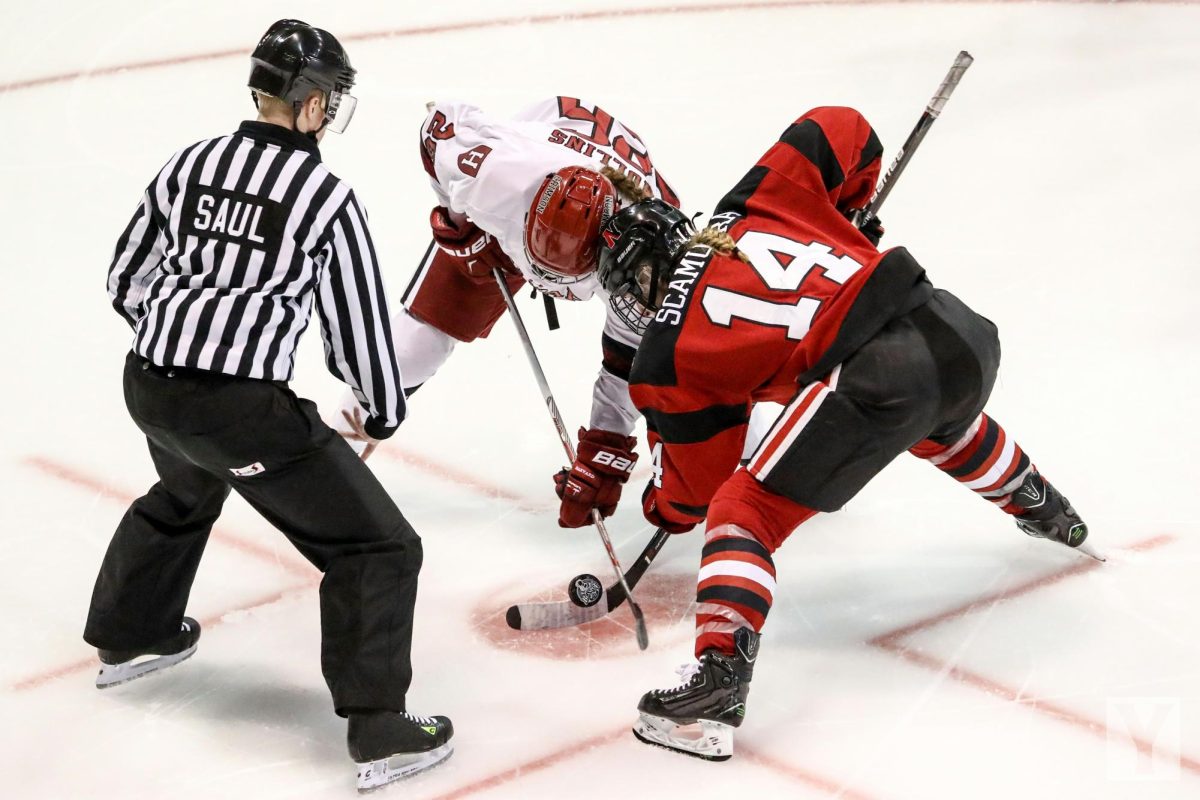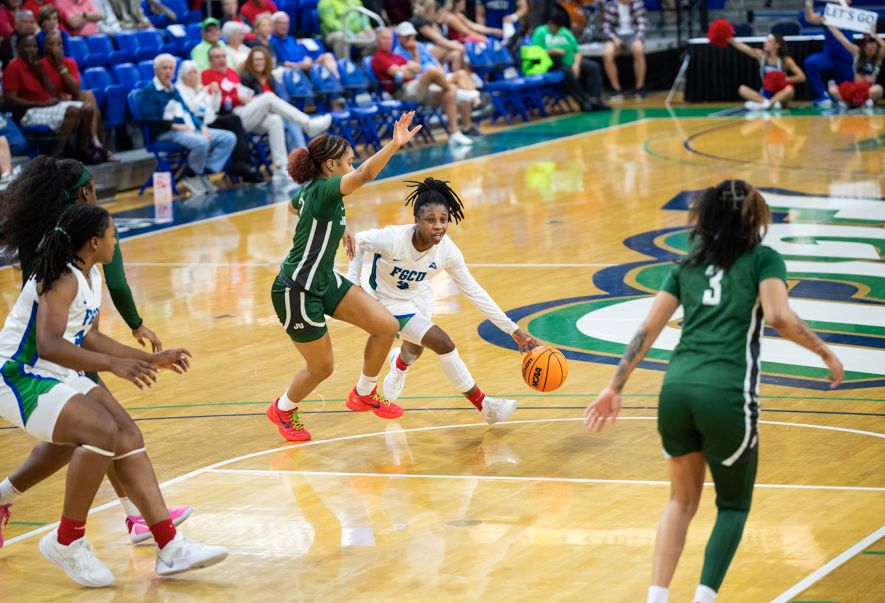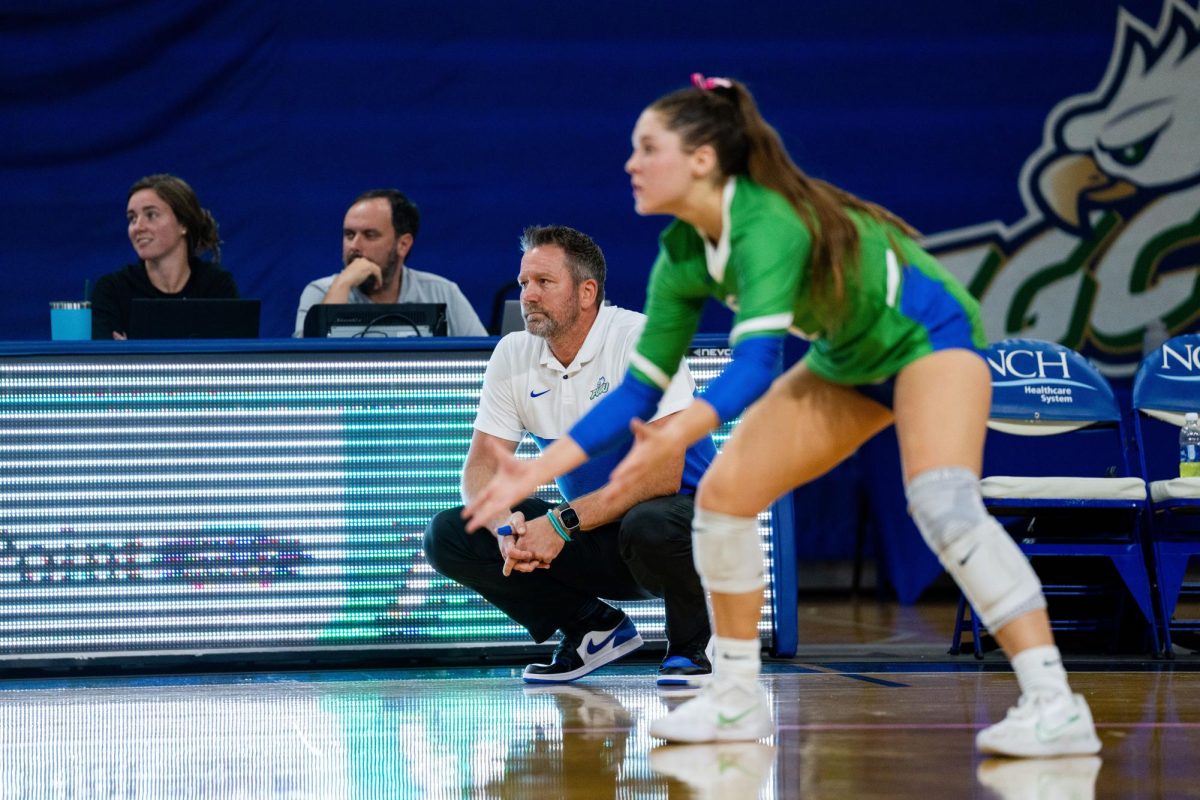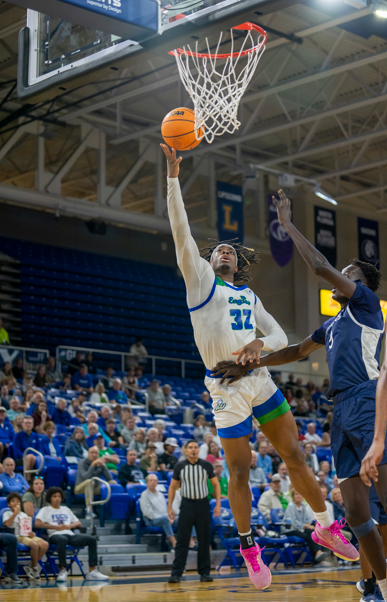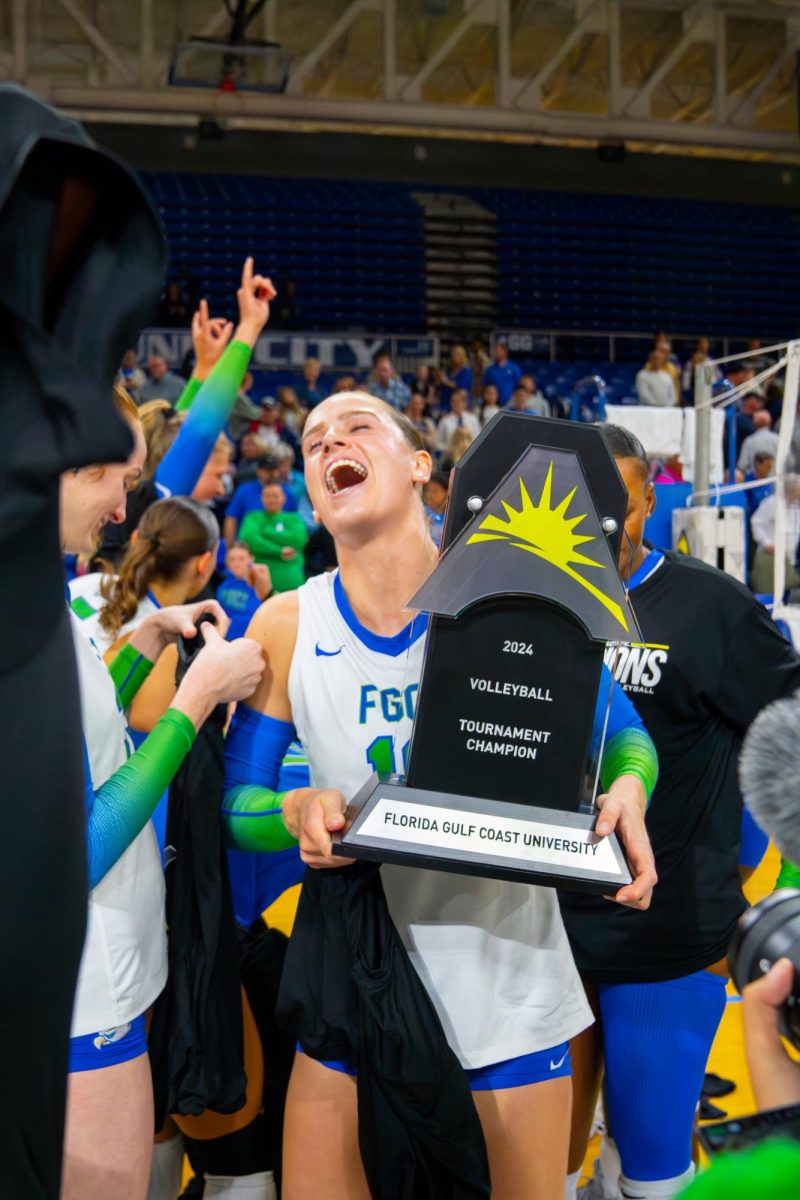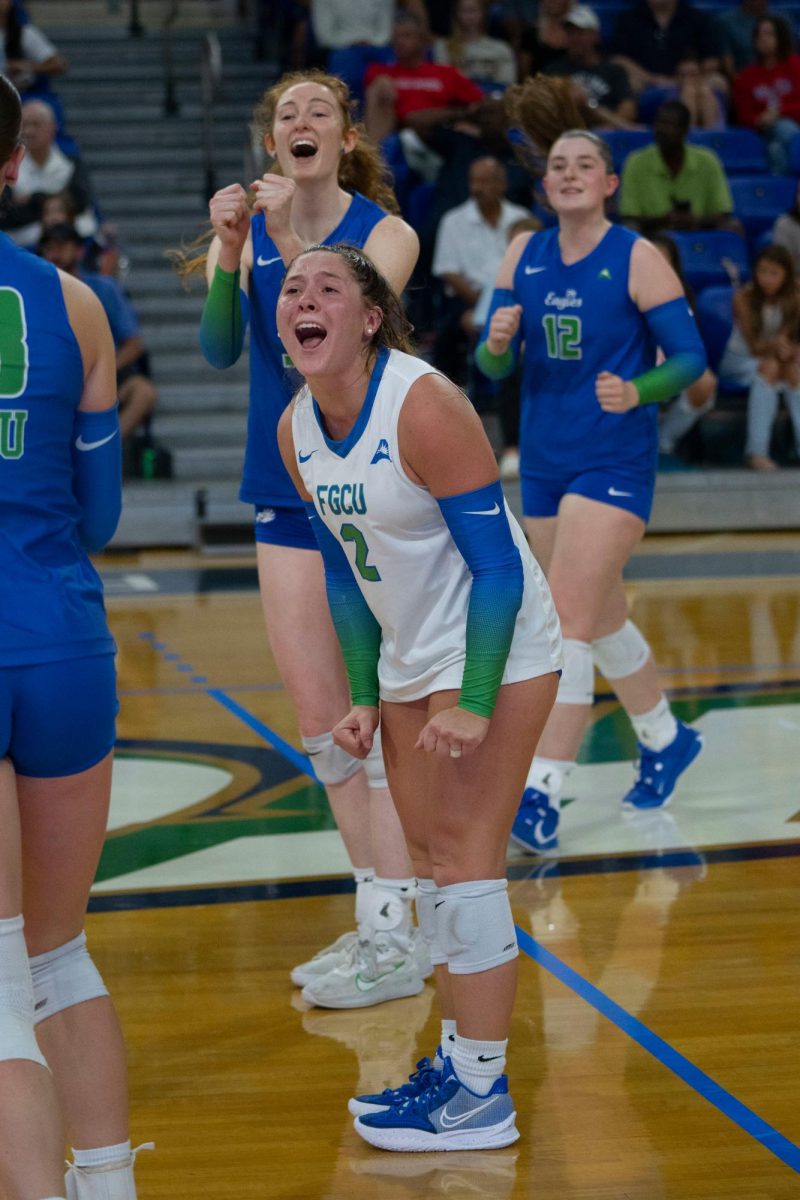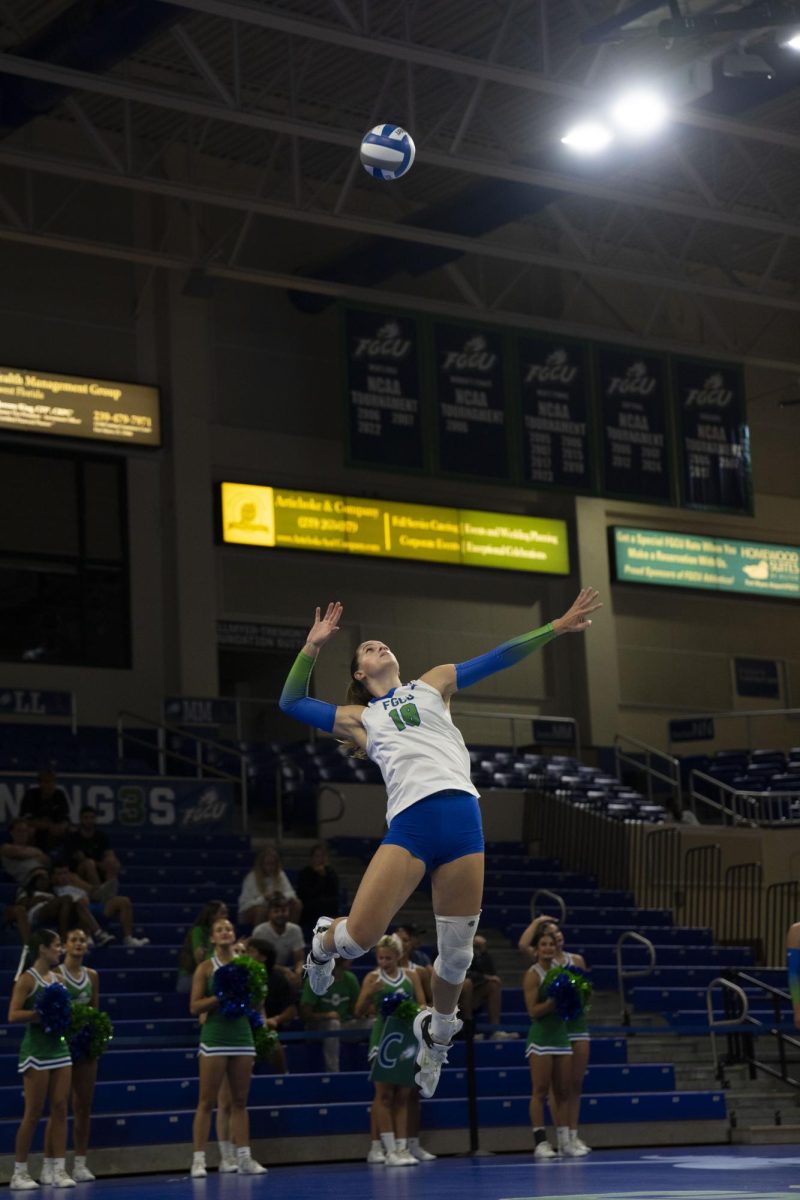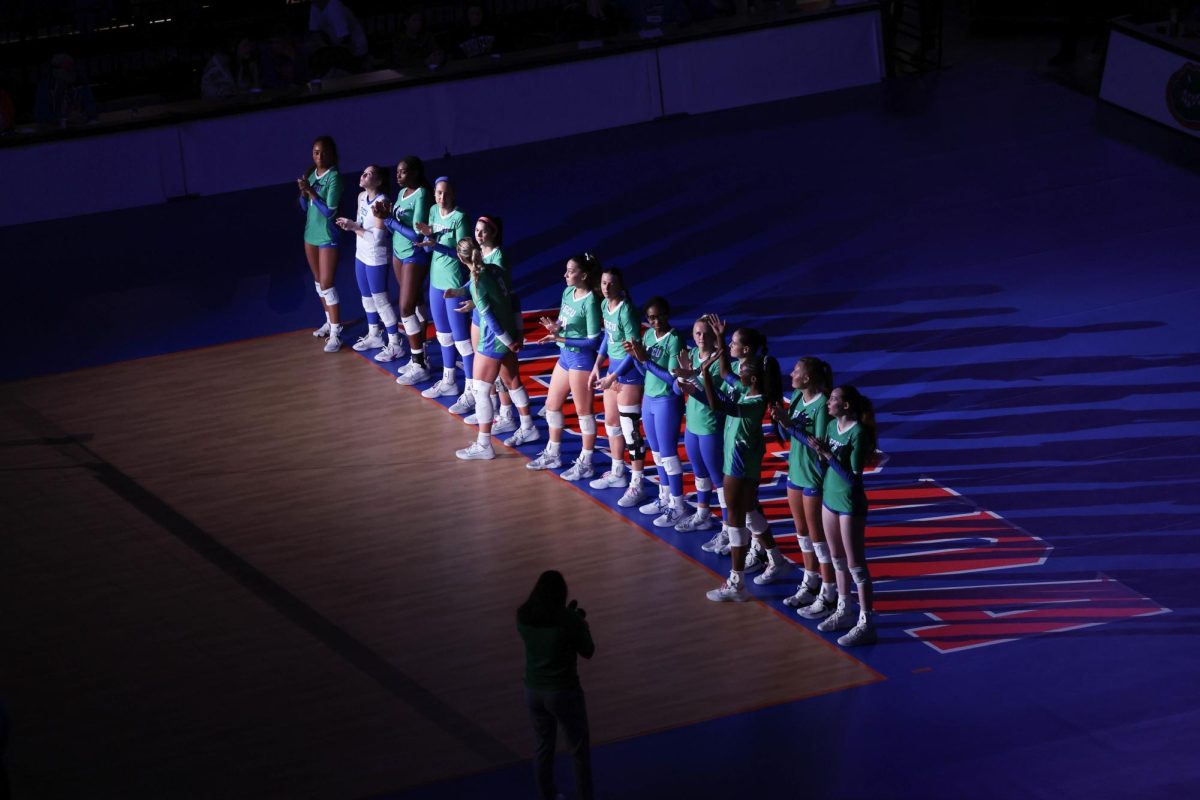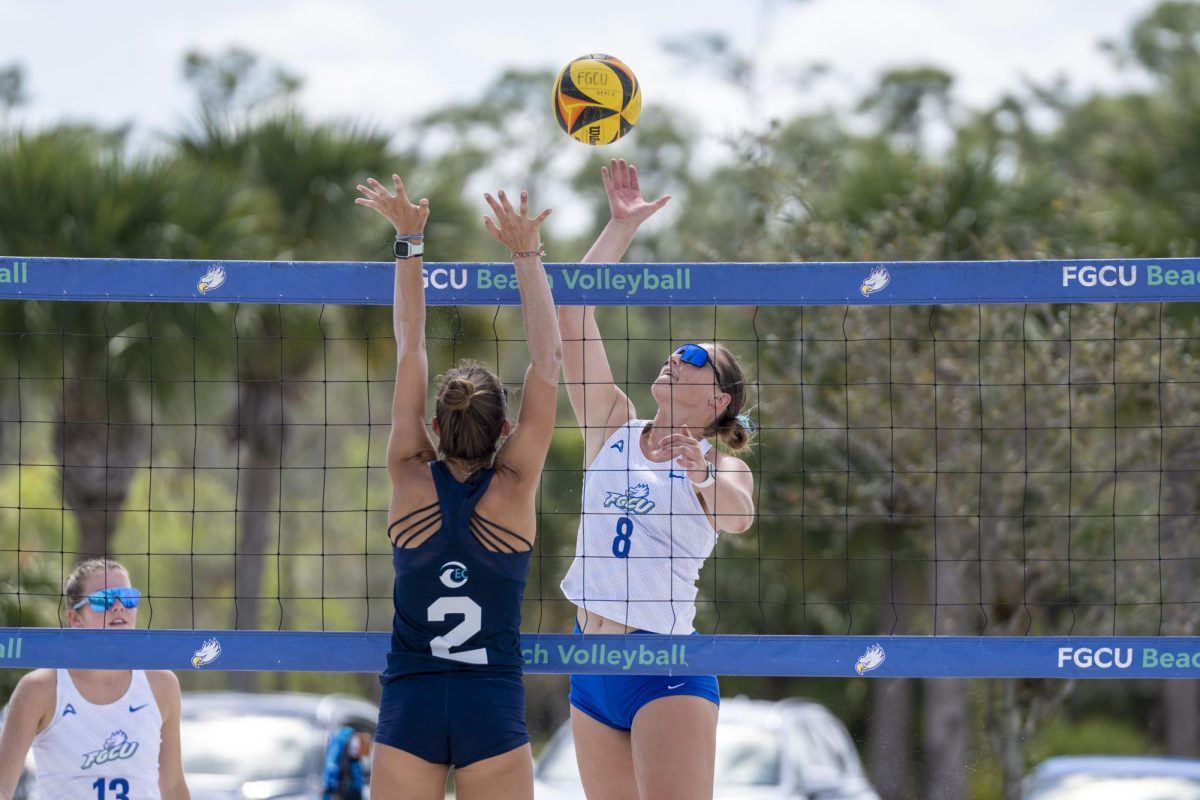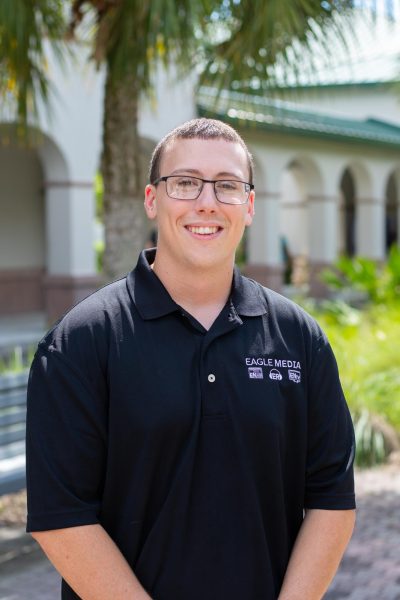Volleyball head coach Matt Botsford has completed his 10th year coaching FGCU volleyball.
According to FGCU Athletics, Botsford was hired on Feb. 10, 2014, and since then, his teams have compiled a 210-66 (.761) overall record, including a 109-23 (.826) record in ASUN play coming into this season. Botsford has the best coaching record as far as number of wins in FGCU history, and ranks 11th in the nation among all active DI coaches in career winning percentage. He was awarded ASUN’s Coach of the Year in 2018, 2019 and 2021.
With this season coming to a close, Botsford coached the Eagles to a 26-7 overall record and a 15-1 conference record. This season was capped off with FGCU’s third consecutive ASUN title by sweeping Lipscomb in the final, 3-0. The Eagles then fell in the NCAA Tournament to Florida in a sweep, 3-0, to cap off the 2023 volleyball season.
According to FGCU Athletics, Botsford, a 1998 graduate from Tri-State University (now Trine University), was a two-year captain who graduated as the program’s all-time leader in kills, digs and blocks and was named an All-American Scholar Athlete as a senior. In 2006, he was inducted into the Tri-State Hall of Fame. Botsford resides in Estero with his wife, Lindsey. Together, they have two kids, a daughter, Harper, and a son, Cache.
Before coaching FGCU volleyball, Botsford served as an assistant coach at five different colleges, as well as being the interim head coach at his alma mater. He coached at Notre Dame, Miami, Indiana University, Purdue University Indianapolis and the University of Indianapolis. His most recent position was as an assistant at Colorado State University from May 2012 to February 2014. Now at FGCU, Botsford has helped coach the Eagles to their first Power Five wins in program history over bigger schools such as Indiana, Miami, UCF and Texas Tech.
Botsford had other offers to join another volleyball program, but he decided to become the head coach at FGCU.
“I always knew I wanted to find a collegiate opportunity that I would have to build from the ground up. At the time that I was approached about this job, FGCU was going through a difficult time in terms of the volleyball program. It was a transition period, and we had just gone through that Dunk City phenomenon with the basketball team. There was a lot of momentum to the name FGCU, so all of those things aligned and I thought, well, this is a great place to do that. I had been waiting for the right opportunity rather than jumping at the first opportunity,” he said.
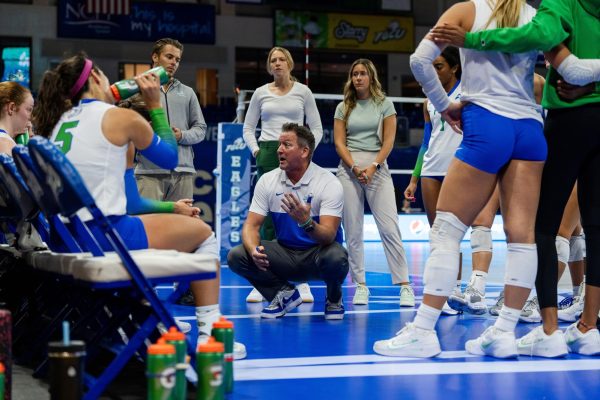
The term “culture” is widely used in reference to the atmosphere of the club or team. It could be the difference between an athlete deciding to come to your school or a rival university. Over the course of his career, Botsford has built up a certain expectation of what he wants from his players.
“For us, I’ll tell you, we want good human beings first. Just be a good human, and everything else we can help fall in place and shape where we need to. Of course, you have to be a great competitor, and a great teammate. You have to be selfless, and that can be difficult for competitive athletes that want themselves to be successful. But sometimes you have to do that, and sacrifice that for the success of the team. So yeah, culture is a huge priority, but every year it looks very different. So we have to figure out with this group, with these personalities, how do we shape it the right way,” Botsford said.
Juliana Lentz is a senior at FGCU. She played middle blocker all four years for coach Botsford. She made the ASUN All-Freshman Team unanimously in her first year at FGCU and made the All-Tournament Team this season for her performance in the ASUN Volleyball Championship.
“Without coach Botsford, there is no FGCU volleyball. This is his program. In 10 years, he has accomplished what some coaches don’t accomplish in their entire careers. In all my lifetimes I could have played volleyball, I am beyond lucky to have gotten to play for coach Botsford,” Lentz said.
Botsford says what means the most is seeing his players grow up, and taking on that next phase of life.
“Over the last five years, as many of our players are now out into the real world, and they’re raising families, they’re in a different stage of life. When I have a chance to interact with them, and they speak highly about their experience, in retrospect, that’s probably the most meaningful thing for me. That’s been great over the last few years, those interactions have probably been the most important to me,” Botsford said.



